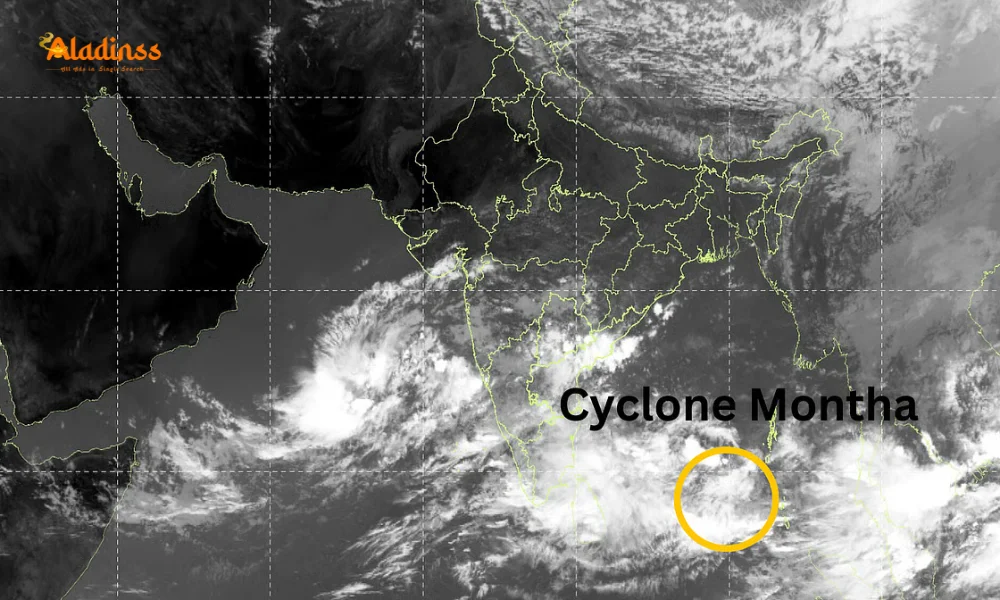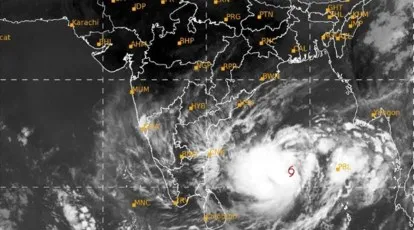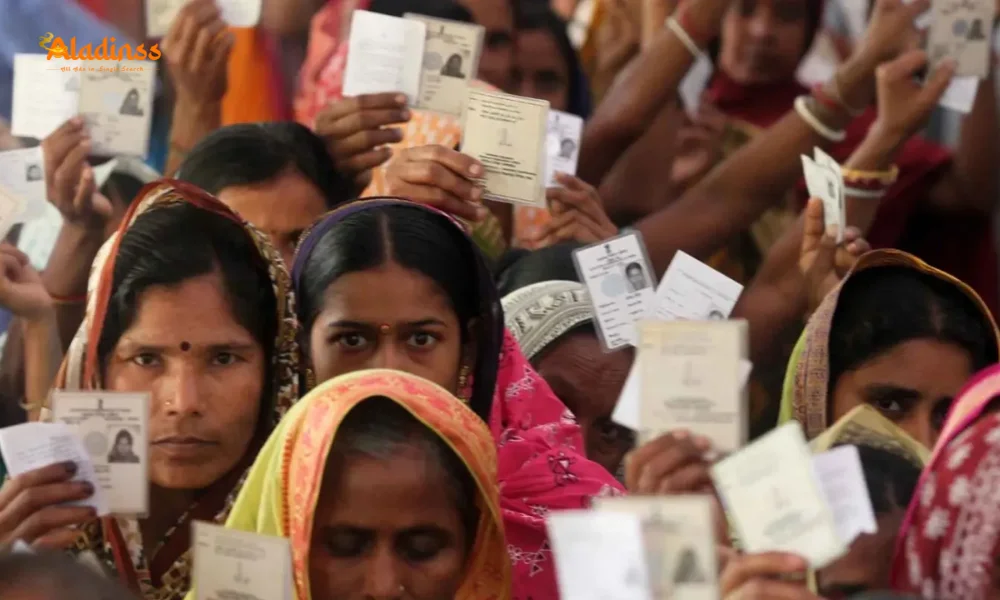Cyclone Alert Tamil Nadu 2025: Heavy Rain and Flood Warnings for October 27

Cyclone Alert: Tamil Nadu Braces for Heavy Rain by Oct 27!
The India Meteorological Department (IMD) has issued a critical cyclone alert for Tamil Nadu, predicting a cyclonic storm to hit by October 27, 2025. A low-pressure system over the southeast Bay of Bengal is expected to intensify, bringing heavy rainfall, thunderstorms, and lightning across Tamil Nadu, Puducherry, and Karaikal. Coastal districts like Chennai, Cuddalore, and Chengalpattu are on high alert for intense showers. This guide details the IMD’s forecast, affected areas, and safety measures to prepare for the impending cyclone in 2025.
Recent weather patterns indicate turbulent conditions, with parts of Tamil Nadu already experiencing heavy showers. The IMD’s warning highlights the need for residents to stay informed and take precautions as the cyclonic storm approaches. From Chennai’s cloudy skies to isolated heavy rainfall in coastal regions, this article provides a comprehensive overview of the weather forecast, helping you navigate the stormy days ahead in Tamil Nadu during October 2025.
IMD’s Cyclone Forecast for Tamil Nadu
The IMD reported a depression forming over the east-central Arabian Sea, while a low-pressure system in the southeast Bay of Bengal is set to escalate into a cyclonic storm by October 27, 2025. This weather system is expected to bring significant rainfall across Tamil Nadu, with coastal areas facing the brunt of the storm. The forecast warns of thunderstorms and lightning, urging residents to prepare for potential disruptions in daily activities.
The cyclonic activity is driven by favorable atmospheric conditions, including warm sea surface temperatures and low wind shear, which fuel storm intensification. In 2025, Tamil Nadu’s coastal regions are particularly vulnerable due to their proximity to the Bay of Bengal, a known hotspot for cyclone formation. Residents in affected areas should monitor IMD updates closely to stay ahead of the storm’s progression.

Chennai Weather Outlook
Chennai, Tamil Nadu’s capital, is bracing for partly cloudy skies with temperatures ranging from 24°C to 29°C. The IMD predicts one to two spells of light to moderate rain accompanied by thunder and lightning over the next 48 hours. Coastal areas of Chennai are particularly susceptible to heavy showers, which could lead to waterlogging and traffic disruptions. Residents are advised to plan travel and outdoor activities cautiously during this period.
The city’s weather is influenced by the approaching cyclonic storm, which may intensify wind speeds and rainfall. In 2025, Chennai’s infrastructure is better equipped to handle such weather events, but low-lying areas remain at risk. Staying updated with real-time weather alerts via the IMD website or mobile apps is crucial for Chennai residents to ensure safety during the cyclone season.
Date-Wise Weather Forecast for Tamil Nadu
The IMD has provided a detailed day-by-day forecast for Tamil Nadu, Puducherry, and Karaikal, outlining expected rainfall and weather conditions:
- October 26, 2025: Light to moderate rainfall is expected across many areas, with isolated thunderstorms and lightning. Heavy rain is likely in Tiruvallur, Chennai, Chengalpattu, Kancheepuram, Ranipet, Villupuram, and Puducherry.
- October 27, 2025: The cyclonic storm is expected to make landfall, bringing heavy rainfall to Kancheepuram, Chengalpattu, Tiruvallur, Chennai, and Ranipet, with scattered showers elsewhere.
- October 28, 2025: Light to moderate showers will continue in some areas, with heavy rainfall persisting in Kancheepuram, Chengalpattu, Tiruvallur, Chennai, and Ranipet.
- October 29, 2025: Isolated light to moderate rain is expected across Tamil Nadu, Puducherry, and Karaikal, with reduced intensity as the storm weakens.
This forecast highlights the need for preparedness, especially in coastal districts prone to heavy rainfall. In 2025, the IMD’s advanced forecasting tools provide accurate predictions, helping residents and authorities plan effectively to mitigate the cyclone’s impact.
Affected Districts and Preparations
Several districts in Tamil Nadu, including Cuddalore, Villupuram, Chengalpattu, and Puducherry, are expected to experience heavy rainfall due to the cyclonic storm. These areas are prone to flooding, and local authorities are on high alert, implementing measures like clearing drainage systems and setting up relief centers. Residents in low-lying areas should prepare emergency kits and avoid unnecessary travel during peak rainfall periods.
In 2025, Tamil Nadu’s disaster management systems are well-coordinated, with early warning systems in place to alert residents. Schools and offices in affected districts may close temporarily, and fishermen are advised to avoid venturing into the sea until the storm subsides. Staying informed through official channels ensures residents can take timely action to stay safe.
Safety Tips for Cyclone Preparedness
Preparing for a cyclone is critical to ensure safety and minimize damage. Here are essential tips for Tamil Nadu residents facing the October 2025 cyclone:
- Stay Informed: Monitor IMD updates via their website, mobile apps, or local news for real-time weather alerts.
- Prepare an Emergency Kit: Include essentials like water, food, medicines, flashlights, and batteries.
- Secure Property: Reinforce windows, secure loose objects, and elevate appliances in flood-prone areas.
- Avoid Travel: Stay indoors during heavy rainfall and avoid flooded roads or bridges.
- Follow Evacuation Orders: If authorities issue evacuation notices, comply promptly to ensure safety.
These precautions can significantly reduce risks during the cyclone. In 2025, Tamil Nadu’s robust disaster response framework, combined with community preparedness, ensures residents are well-equipped to handle the storm’s impact. Act early to protect yourself and your family.
Impact on Daily Life and Infrastructure
The cyclonic storm is likely to disrupt daily life in Tamil Nadu, particularly in coastal districts. Heavy rainfall may lead to waterlogging, power outages, and traffic disruptions, especially in urban centers like Chennai. Public transportation, including buses and trains, may face delays or cancellations, and residents are advised to check schedules in advance.
Infrastructure in low-lying areas is at risk of flooding, and authorities are working to strengthen drainage systems and deploy emergency response teams. In 2025, Tamil Nadu’s investment in resilient infrastructure helps mitigate some impacts, but residents should remain cautious and avoid unnecessary risks during the storm’s peak.
Historical Context of Cyclones in Tamil Nadu
Tamil Nadu has a history of facing cyclonic storms, particularly during the post-monsoon season (October to December). The Bay of Bengal’s warm waters make it a breeding ground for cyclones, with past events causing significant damage to coastal communities. In 2025, advancements in weather forecasting and early warning systems have improved preparedness, but the region’s vulnerability remains.
Learning from past cyclones, Tamil Nadu has enhanced its disaster management strategies, including better coordination between state and central agencies. The October 2025 cyclone underscores the importance of continued investment in climate resilience, ensuring communities can recover quickly from such natural events.
Community and Government Response
Tamil Nadu’s government is proactively preparing for the cyclone, with the State Disaster Management Authority mobilizing resources. Relief camps are being set up in vulnerable areas, and emergency helplines are active for residents needing assistance. Community organizations are also playing a role, distributing supplies and raising awareness about safety measures.
In 2025, technology-driven solutions, such as mobile alerts and satellite tracking, enhance the government’s ability to respond swiftly. Residents are encouraged to cooperate with local authorities and follow safety guidelines to minimize risks during the cyclonic storm.
Long-Term Preparedness for Cyclones
Beyond immediate preparations, long-term strategies are essential for Tamil Nadu to combat frequent cyclones. Investing in climate-resilient infrastructure, such as elevated roads and flood barriers, can reduce damage. Community education programs on cyclone preparedness can also empower residents to act proactively during future storms.
In 2025, Tamil Nadu is leveraging technology to improve forecasting accuracy and disaster response. Initiatives like mangrove restoration and coastal protection can further mitigate cyclone impacts, ensuring the state remains resilient in the face of changing climate patterns.
Conclusion: Stay Safe During the 2025 Cyclone
The cyclone hitting Tamil Nadu by October 27, 2025, demands vigilance and preparation from residents and authorities alike. With heavy rainfall, thunderstorms, and lightning forecast across Tamil Nadu, Puducherry, and Karaikal, staying informed and following safety guidelines is crucial. From Chennai to Cuddalore, the IMD’s detailed predictions help communities brace for impact. By preparing emergency kits, securing property, and monitoring updates, you can navigate this cyclonic storm safely.
In 2025, Tamil Nadu’s advanced disaster management systems and community resilience offer hope amidst the storm. Stay proactive, follow IMD alerts, and prioritize safety to weather this cyclone with confidence. Together, residents can ensure minimal disruption and a swift recovery as Tamil Nadu faces this natural challenge.
Comment / Reply From
No comments yet. Be the first to comment!












